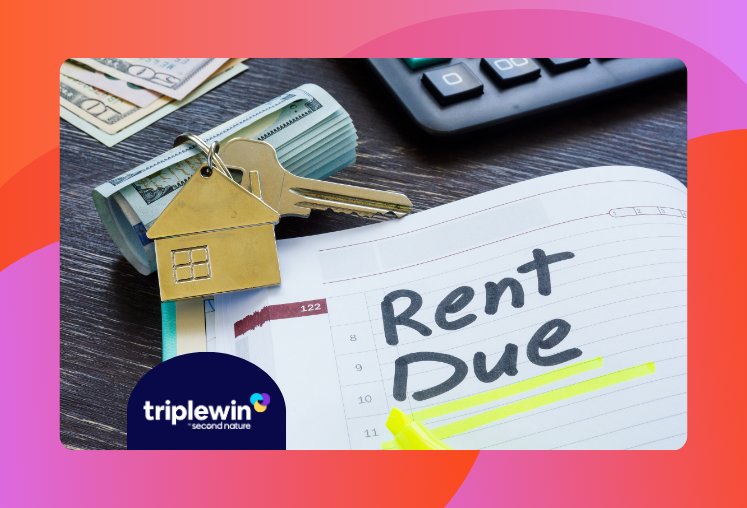What we'll cover
For property managers, basic operations like budgeting, collecting rent, and handling maintenance often take up the bulk of your time. Balancing the management of day-to-day tasks, delivering results to owners, and keeping properties in good condition at market rent can often feel all-consuming.
In this article, we’ll look at the core property management operations PMs have to manage, why they’re so important, and how operators can streamline these processes to deliver better results in less time.
What are property management operations in real estate?
Property management operations are all of the various tasks and processes that go into planning, directing, and controlling property-related functions. This includes both the work related to the property itself—like maintenance and security—and the management of residents—like leasing, onboarding, and rent collection.
Core property management operations and responsibilities
There are dozens of core property management operations, which fall into a few different categories:
- Property upkeep
- Repairs and maintenance
- Property security
- Inspections and walkthroughs
- Resident coordination and management
- Marketing vacancies
- Leasing
- Security deposit management
- Resident onboarding
- Collecting rent
- Coordinating lease renewals
- Answering support calls
- Carrying out evictions if needed
- Business processes
- Budgeting
- Expanding door count
- Handling taxes
- Hiring and managing staff
- Reporting results
Why property management operations matter for investors and managers
Property management operations are key at every level because they keep your business moving efficiently, they keep happier residents in your properties longer, and they keep owners from churning and finding new management.
All of these operations keep the value of your investors’ assets high while also delivering a high quality of living to residents. Well-organized operations also keep your company compliant with federal, state, and local regulations, reducing risk and ensuring you’re operating fairly. High-quality processes and operations maximize the value of your business and deliver better results for real estate investors.
Goals of effective property management operations
While many property managers are forced to focus on the day-to-day just to get by, there are a few broader goals that successful property managers look at. From increasing satisfaction to maximizing investment returns, effective property management operations should deliver growth and progress, not just maintain the status quo.
Maximizing property value
A top priority for property managers should be maximizing the value of their investors’ properties. Maintaining the property's condition and ensuring it remains in good repair to protect its value, identifying opportunities for upgrades and renovations can deliver dramatic increases in value, too.
Optimizing income from real estate
Setting competitive rents, collecting on time, and minimizing vacancies are all core functions for a property manager. They ensure that the investor is paid on time and remains happy with your services. Identifying ways to optimize income is essential to serving as a business partner to your investors.
Improving tenant satisfaction
The best property managers don’t just provide places for their residents to live, they consistently strive to improve their living situations. From improving the physical condition of the property to adding new resident benefits, or updating processes to better fit their residents’ needs, property managers are uniquely positioned to make life a little easier for a large group of people.
Making property management more efficient
With everything else going on, it can be difficult to find time to optimize your business. By developing streamlined processes and adopting the right technologies, property managers can spend less time on routine tasks and more time growing their business.
Key operational areas in property management operations
Resident management in property management operations
Resident management includes all things related to placing, retaining, and delighting the people who live in your properties. That includes things like screening applicants, but also building relationships and making sure that resident needs are met consistently and proactively. Sometimes, this also includes handling disputes, fielding questions and complaints, and enforcing the terms of the lease.
Some key aspects of resident management include:
- Attracting and screening applicants
- Signing leases
- Managing lease compliance
- Renewing leases
- Developing resident relationships
- Administering resident benefits
Financial management in property management operations
Financial management in property management is the combination of all items related to the finances of your properties. From maintenance costs to rents and fees, these operations impact the general ledger and, ultimately, your company’s bottom line. It includes not only the ongoing management of a property’s finances, but also future investments and reserve funds that may come into play later on.
Some of the most important financial processes are:
- Security deposit management
- Rent collection
- Reserve fund maintenance
- Budgeting and reporting
- Expense management
Property maintenance and upkeep in property management operations
Property upkeep is all about the physical condition of the properties you manage. While sometimes residents alert you to maintenance issues or needed repairs, it’s important to also conduct your own inspections or walkthroughs to ensure that the property is in good condition. This category also includes planning for and recommending future upgrades to the property and investments that will increase the property’s value or command higher rents.
Core maintenance and upkeep operations include:
- Routine maintenance
- Repairs
- Preventative maintenance
- Seasonal maintenance like winterizing or HVAC inspections
- Large-scale renovations
- Appliance or fixture upgrades
Regulatory compliance and risk management in property management
Property management and real estate are highly regulated industries, which makes risk management and regulatory compliance essential parts of the job. Because states, counties, and cities can have more specific restrictions than the federal government, it’s important to stay on top of the ever-changing regulatory landscape.
Regulatory management includes tasks like:
- Legal compliance
- Property and tenant safety
- Comprehensive lease documentation
- Full security deposit compliance
Streamline your property operations with Second Nature
Streamlining your operations can transform your business, but it can seem like an intimidating idea. With Second Nature’s Resident Benefits Package, you can remove hours of work from your team across HVAC maintenance, pest control, and more, all while incentivizing residents to pay on time and stay longer.
FAQ
What is included in property management operations?
Property management operations includes all of the different tasks required to control property-related functions, including property upkeep, financial management, leasing, maintenance, resident coordination, and business processes.
How do property management operations improve rental income?
Effective property management operations create happier residents, encouraging them to renew their leases and pay on time. As a result, your property management company has more consistent rent income and lower expenses related to advertising, background screening, and vacancies.
What tools help streamline property management operations?
Multiple tools, including task management software, property accounting software, electronic lease collection platforms, resident screening tools, and Resident Benefits Packages can all help streamline property management operations. Before selecting tools, you should look at the individual needs of your business and where your operations could use the most streamlining, then look for tools that can help that specific function.
How do modern property management operations benefit residents?
Modern property management operations create a better living experience for residents. Modern operations are focused on delivering a top-tier experience to residents, rather than simply keeping the property functional. Many property managers are finding innovative ways to delight residents in addition to fulfilling the standard commitments of property management.
What role does technology play in property management operations?
The property management technology space has grown to offer more and more solutions to property managers looking to streamline and automate their operations. Modern technology tools help property managers better manage daily operations like rent collection, applicant screening, property listings, and maintenance communications.
Topics:





